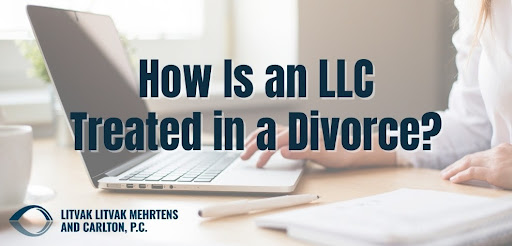Divorce is a challenging process, mentally, emotionally, and financially. Especially in high assets divorces where one or both spouses have a significant value of assets to their names. Not only must you consider how to divide the assets and potential alimony payments, you must also consider capital gains and divorce. How will the divorce affect your taxes? Will you end up paying more than you should?
At Litvak Litvak Mehrtens and Carlton, P.C., our 65 years of experience as a Colorado divorce lawyer firm gives us the knowledge we need to litigate on your behalf. We have what it takes to protect you, your assets, and your rights throughout the process. Our top priority is to work as hard as we can to ensure that you receive the best possible outcome for your case. For more information on how we can help you, please call our Denver office at 303-951-4506. We look forward to scheduling a consultation with you.
What Is a Capital Gains Tax Break?
Capital gains are a tax on the growth in value of investments incurred when individuals and corporations sell those investments. When assets are sold, capital gains can be referred to as having been “realized”. The taxes do not apply to unsold or unrealized investment, so stock shares that appreciate every year will not incur any kind of capital gain taxation until they are sold, no matter how long you happen to hold them for.
Day traders and other investors should keep in mind that the profits they make on assets that they hold for less than a year are taxed at a higher rate. The U.S. capital gains tax only applies when an individual sells their asset for profit after holding it more than one year, referred to as long-term capital gains. There are three rates that depend on your tax bracket: 0%, 15% or 20%. Short term capital gain taxes apply if you have held onto something less than a year and is taxed as ordinary income.
How Does Someone Qualify for the Capital Gains Tax Break?
Selling a home can be tax-free if you meet certain criteria during the sale. You must have owned the home, using it as your primary residence for two of the past 5 years. It is not necessary that these two years be consecutive. You must not have sold a home and claimed capital gains tax exclusion in the past two years. If your gains do not exceed the threshold for exclusion, you do not owe taxes on the sale of your home.
How Do I Avoid Capital Gains Tax in a Divorce?
Luckily, there are strategies for either avoiding or minimizing your taxation of capital gains in divorce:
- If possible, sell the home before the year in which your divorce is final. Let’s say you plan to finalize the divorce in March. In this case, we recommend selling the home before January rolls around, if possible. The IRS still considers that you are married at the time of the sale of the home, and you receive the $500,000 exclusion.
- Maybe you both have ownership interest in the house. One of you owns a certain percentage, while the other owns the rest. If you sell the house soon after the divorce, each of you may exclude up to $250,000 of your respective shares. However, two conditions are essential.
- You both owned your portion of the home for at least two of the past five years.
- Each of you used that home as your primary residence for two of the past five years.
- After the divorce, maybe you receive sole ownership of the home. Normally, your maximum exclusion caps at $250,000, as you are single. However, if you remarry and then live in that house for two years with the new spouse, you qualify for the $500,000 exclusion.
How is Capital Gains Tax Split After Divorce?
While selling your house at the time of the divorce, the capital gains tax still applies. However, you can exclude up to $500,000 of those gains from taxes if you lived in the home for two of the five years before the sale of the home. If one spouse is a member of the military, it is possible to extend the five-year period to 10 years. Buying the house less than 2 years prior reduces the exclusion.
Additionally, you both have the ability to exclude up to $250,000 of capital gains from your taxable income. This only applies, however, to the primary residence. In other words, vacation homes do not qualify.
Do You Have to Pay Capital Gains in a Divorce Settlement?
By now we’ve covered what happens when you sell your house in a divorce. Capital gains and divorce goes beyond just the marital home, however. It also includes the divorce assets that you gain other than the home, should you choose to sell them. In this case, we recommend planning ahead of time and calculating potential capital gains into your divorce settlement negotiations. Work with your attorney to ensure that you don’t accidentally shortchange yourself in terms of taxes and gains. Consider when, or if, selling the home or other assets will help or hurt you in a certain tax year. Sometimes, it is a better idea to sell assets prior to the finalization of the divorce, rather than after.
I Lost My House in Divorce. Will I Have Capital Gains Later?
As an example, we’ll say that you are the primary spouse on your marital home’s mortgage. In the divorce, you plan to give your spouse the rights to the home. They keep the home, but cannot remove your name from the mortgage or refinance it. After the divorce, your former spouse sells the home for massive gains, and keeps the money. The issue arises from how the IRS views the sale. Because you are the primary mortgage holder, the IRS assumes that the proceeds went to you. This becomes a huge issue, as you received none of the proceeds from that sale, but they expect you to pay capital gains taxes on the property.
Work with your lawyer during the process to avoid issues with capital gains and divorce. Pay very close attention to the value of your negotiated assets. Some assets, while they do have a greater value, also have hidden liabilities. Potential capital gains taxes lurk around the corner in assets with great appreciation. Keep track of those potential gains, as well as the value of any assets exchanged during the divorce.
Contact a Denver Divorce Attorney with Litvak Litvak Mehrtens and Carlton, P.C.
Throughout the divorce process, many people find that the stress is almost too much to handle. However, with the help of an experienced Denver divorce attorney, hope is on the horizon. At Litvak Litvak Mehrtens and Carlton, P.C., we strive for only the best in family law services. From divorce cases to child custody disputes to property division, we have the necessary experience. To schedule a consultation with one of our attorneys, please call 303-951-4506 today.






